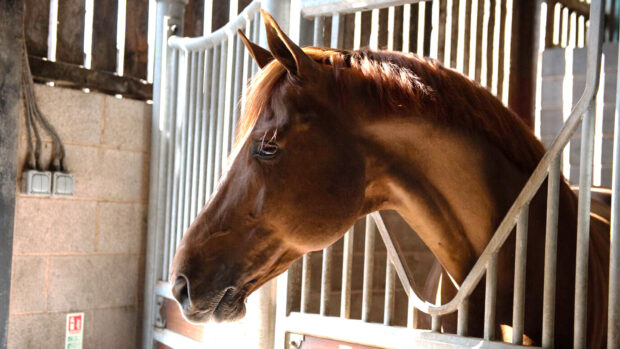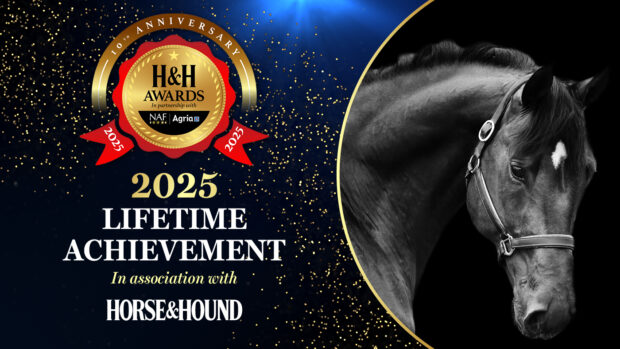Promotional Feature with Great British Racing
Nestled in the remote town of Aboyne, an hour’s drive from Aberdeen, lies HorseBack UK. It’s a remote and idyllic part of the country, synonymous with spectacular scenery and outdoor sport. For Jock and Emma Hutchison, it was the perfect place to begin their dream of starting a Western-style riding business and settling their young family for the future.
Yet, 14 years later, on the same site sits a charity, which has won awards for its work with ex-servicemen and women. For the pair, who are ex-military themselves, Jock having served in the Marines, it wasn’t long before they quickly saw the magic that took place when serving and retired friends came to stay and spent time with their horses.
In 2008, HorseBack UK gained charitable status, taking wounded servicemen and women and introducing them to horses. The programme uses horsemanship to treat and rehabilitate physically and mentally wounded military personnel. It has since expanded into other communities too.
Four former racehorses now live among the herd of 36 in this remote corner of Scotland, inspiring and healing wounds, whether physical or mental. And each has its very own story.
“The story of the racehorses runs parallel to servicemen, in so many ways – a high-intensity, highly focused job, often misunderstood by those outside the industry, which can come to a sudden end through injury,” says Emma. “Our veterans really connect to the stories of the racehorses and find inspiration in them.”
Peopleton Brook, or ‘Brook’ as he is known, was the first to join HorseBack UK back in 2013. A former sprint handicapper, Brook raced an impressive 93 times across six years with nine wins on the track. A tendon injury called time on his racing career, but he continues to come out on top for his new owners at HorseBack. In 2018, he won the prestigious Retraining of Racehorses (RoR) special recognition award for demonstrating the incredible versatility of former racehorses when it comes to adapting to new and varied careers.
“Peopleton Brook wasn’t a top racehorse, but he is a horse whose second career and retraining epitomises the journey endured by those we help at HorseBack. To us, he’s the greatest champion of all,” says Jock.
Following Brook’s success, fellow retirees of the track and turf Delatite, Can Can Dream and Intiwin have since joined the team. For veterans, highly-trained and learning to adapt to life outside a strict regime, the horses represent the journey they are about to undertake. Words, which often fall on deaf ears, are not required.
“When Peopleton Brook first arrived, his sprinting career was in the dust and nobody was quite sure what his next step would be,” adds Emma. “One of our veterans looked at him as he started his own second act and said, ‘If he can do it, then I can.’ We’ve never forgotten that.”

Peopleton Brook spends time with a veteran at HorseBack UK
Of course, not all thoroughbreds are suitable for the job, but for Jock, their intelligence and adaptability alongside their ability to read people is second to none.
“They very quickly adapt,” he says. “Everyone is re-trainable; a racehorse is re-trainable, a Marine is re-trainable. The horses are much quicker to re-learn than the people!”
The settling programme for any horse joining HorseBack takes a characteristically laid-back Western approach. For the first few months, the new recruits are turned out with a small herd where they learn to interact with others and get back to “being a horse”. For racehorses in particular, they learn that their field companions are no longer interested in being the fastest or strongest.
They then follow a variation on techniques known as natural or intelligent horsemanship. The result are horses that respond to simple techniques and follow commands at the slightest touch, ridden in Western saddles and rope halters without bits. Creating intuitive, calm and caring horses is echoed in what HorseBack hopes for every person that arrives at the yard.
Having proven the formula through military programmes, the HorseBack human and horse team now support many more groups – including disadvantaged and disengaged young people and those suffering from substance misuse, emotional trauma or physical or mental illness.
The magic is simple – by working with the horses and gaining their trust, any individual experiencing mental or physical pain is able to rediscover their confidence, sense of self, and find their purpose again.
“Learning to work with a horse is one of the most intricate and challenging things anyone can do,” says Jock. “Gaining its trust, teaching it to follow you and respond to your signals, requires a combination of confidence, calmness, patience, and thought. These are such vital skills to help people to start rebuilding their lives.”
One man who knows this better than most is Bobby Jones. An ex-soldier, Bobby served in Belfast, The Gulf War and Bosnia as part of The Queen’s Own Highlanders regiment. But the horrors of war, bullying and the loss of colleagues and friends left him suffering with PTSD at a time when mental health was less understood and subject to stigma, particularly for men and those from a forces background.

Bobby Jones and former racehorse Delatite
The lack of support and direction resulted in suicide attempts, prison stays and isolation from family. Bobby was referred to HorseBack through military charity Combat Stress, and credits the human-horse team at HorseBack for turning his life around. Now a mentor for the charity, he spends five months a year at the yard, helping with chores and providing a safe, comforting ear to fellow ex-serviceman.
Bobby’s story is one of many. For Peopleton Brook and his fellow racemates, they continue to prove that the next chapter is just around the corner.
To learn more about the the charity’s work and how you can support it, visit HorseBack UK. To find out more about the range of careers former racehorses go on to, visit British racing’s aftercare charity Retraining of Racehorses (RoR).



